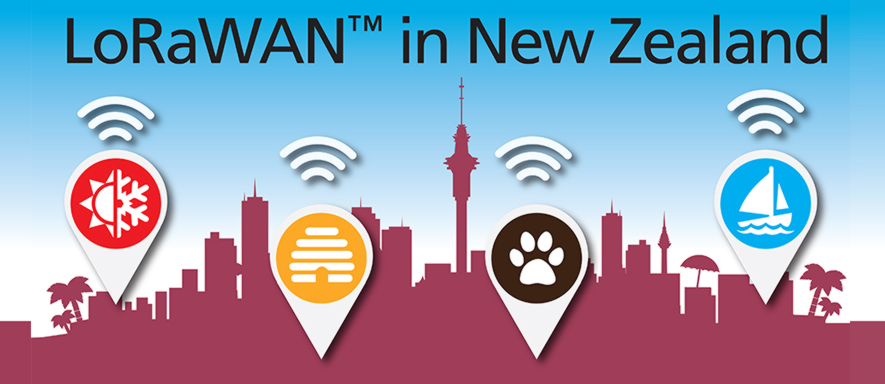New Zealand telecommunications firm Spark has formally announced that it is set to expand its rollout of Internet of Things in the country. In a statement issued to the press, Spark confirmed that its long-range, low-power network will be deployed for commercial use in 60% of the places where New Zealand residents live, work and play.
The LoRaWAN network has already been activated in places such as Auckland, Tauranga, Hamilton, Rotorua, Palmerston North, Shannon, Wellington, Nelson, Blenheim, Christchurch and Dunedin, whilst it has also been disclosed that sites in Hastings and Invercargill will go live within the next fortnight.
Spark has been engaged in comprehensive testing of the LoRaWAN technology on trial sites for the last year – and has partnered with a number of ecosystem vendors from industries ranging from smart buildings, agriculture and marine. However, now that the network has been activated Spark has said local councils are now examining ways which can enable them to operate and maintain key infrastructure in more efficient ways.
In addition, it has also emerged that businesses and local councils can use the network to connect things like vehicles, waterways, machinery and car parks. Sensors that are integrated into these objects are then able to convey information over the network to the people tasked with managing the objects.
Some of the typical commands relayed back are the volume of rubbish in a public bin, or water pH levels in a stream. General Manager of IoT solutions at Spark, Michael Stribling has described the commercialization of its IoT deployment as a landmark event for the operator and said it had the potential to transform the lives of New Zealand residents.
He said, “Our IoT capability is really gathering pace, and now we’ve got this critical mass of coverage we’re able to make the network commercially available. This is a real milestone for Spark as we help New Zealand organizations win big in IoT. While we currently have 60 per cent of rural and urban New Zealand covered, we’ll be working to extend that to 70 per cent by July this year. We’re also looking to partner with organizations to extend coverage into areas where they need it.”
NB Smart-Cities NZ, which is a local company that offers smart city services, has expressed its interest in utilizing the new network for its smart outdoor lighting technology, amongst other solutions. Councils will be able to use the smart lighting technology to manage streetlights remotely, applying bespoke dimming profiles, monitoring maintenance and turning them on or off as needed. Director of NB Smart-Cities NZ, Claus Oustrup said the development by Spark is providing innovative solutions that offer real options in real time to its customers.
He said, “The new Spark network offers real options to our council customers to leverage a range of smart city applications in addition to smart light technology. As we continue to develop leading-edge technology in the IoT space we are really excited about the options and solutions we can bring to market through this new Spark network. For a number of councils having real-time data, asset information and being in control of these devices can increase customer service response times and create real benefits for communities.”








